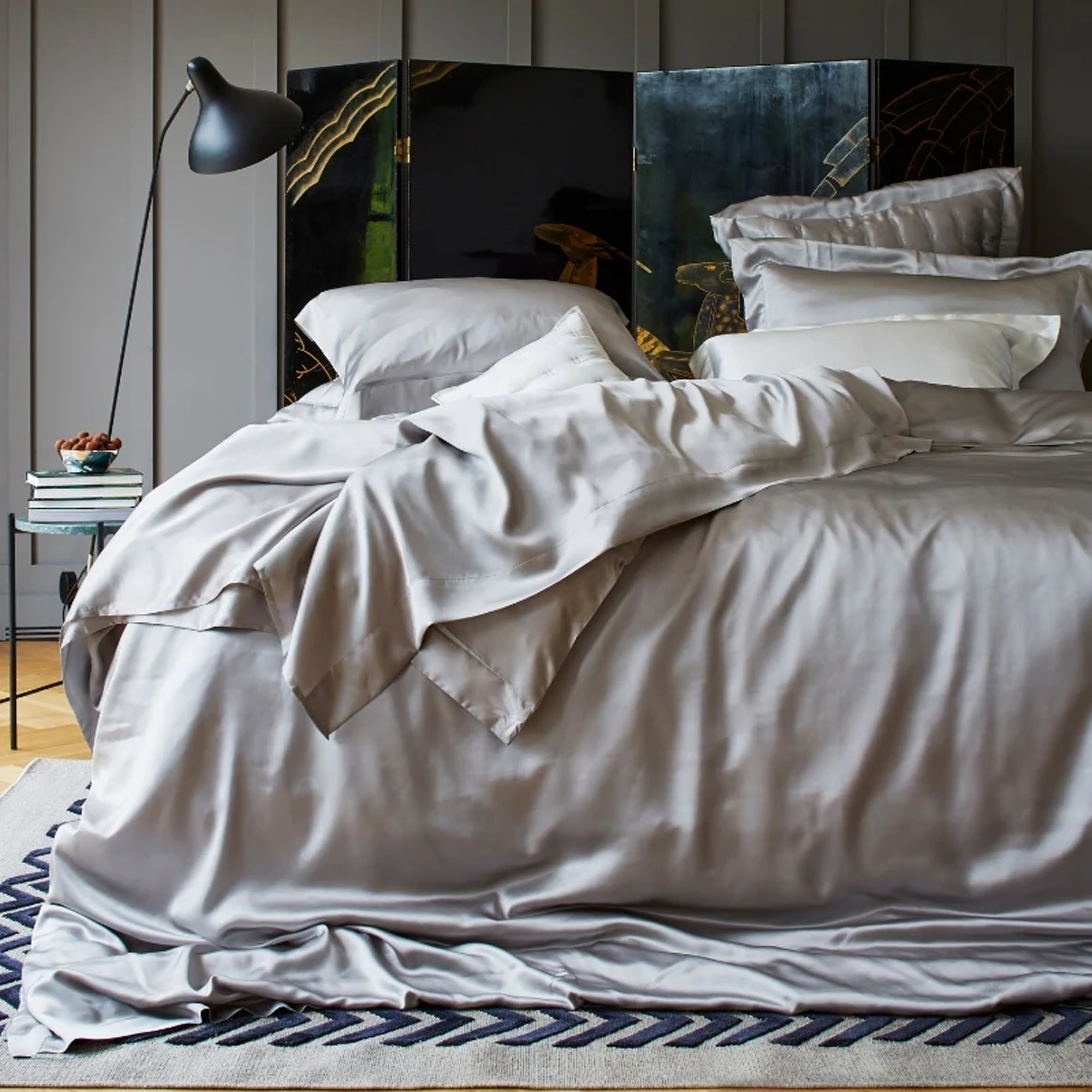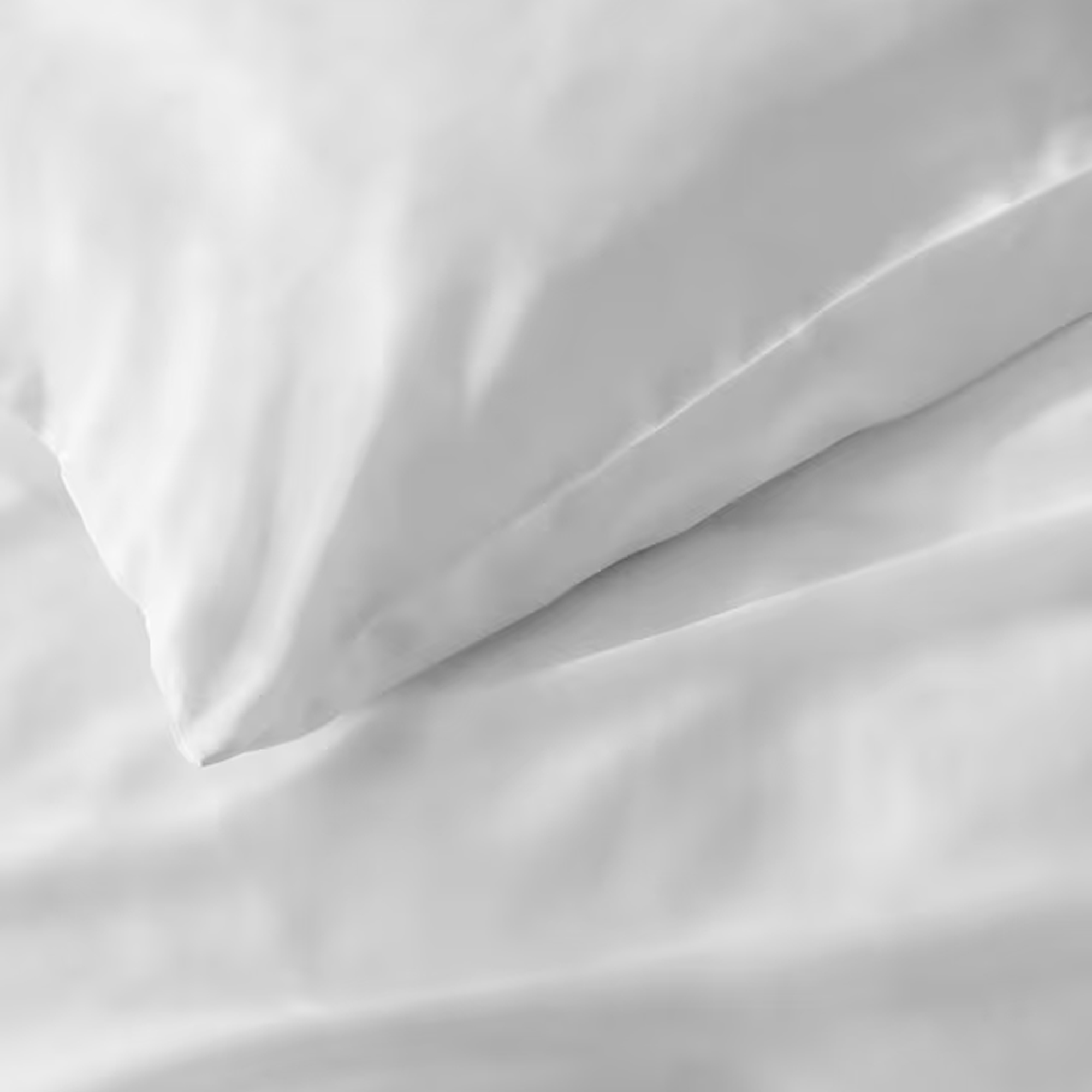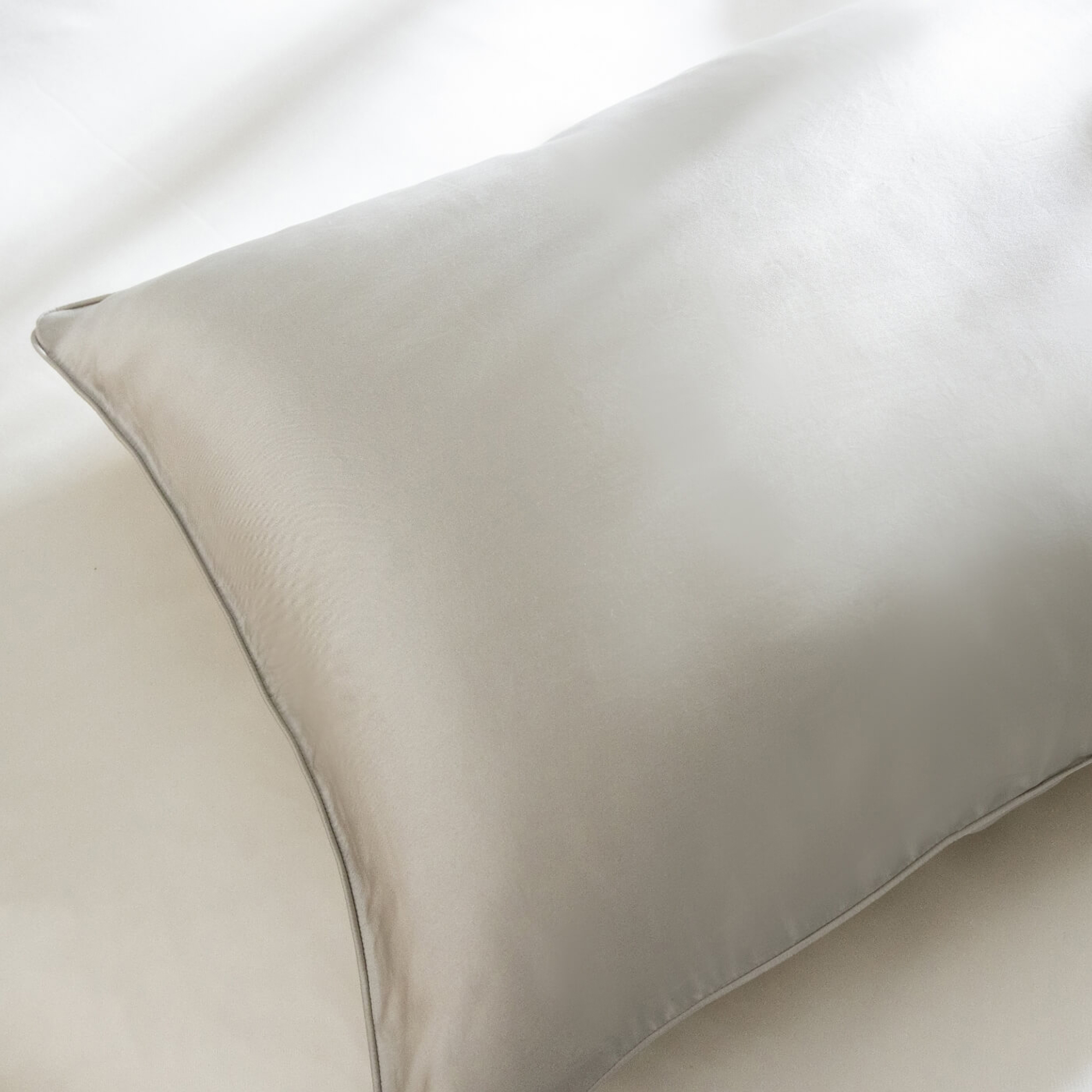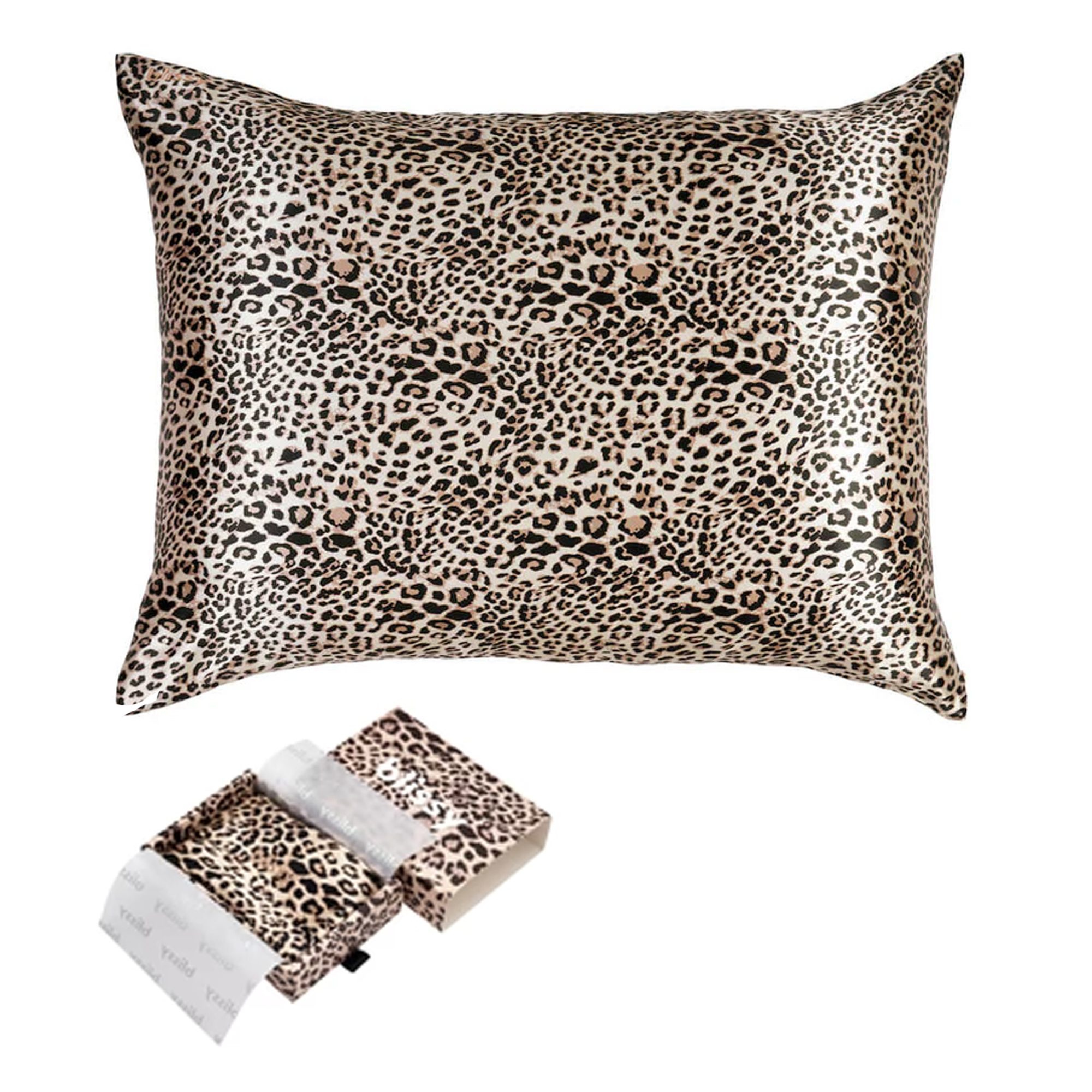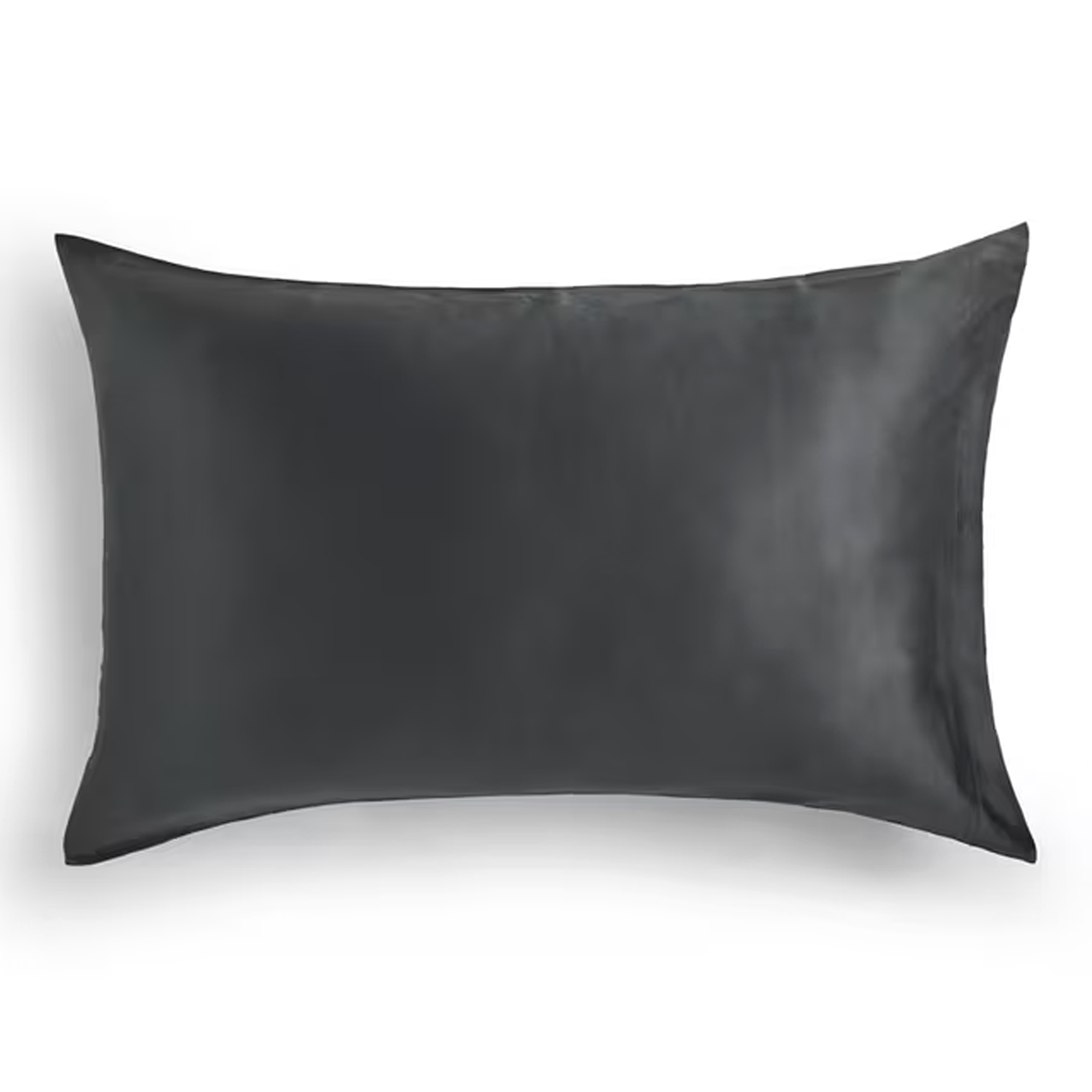Do silk sheets help you sleep better? Experts reveal the many benefits of silk bedding
There's a reason this fabric has been sought after for hundreds of years

Andrea Childs
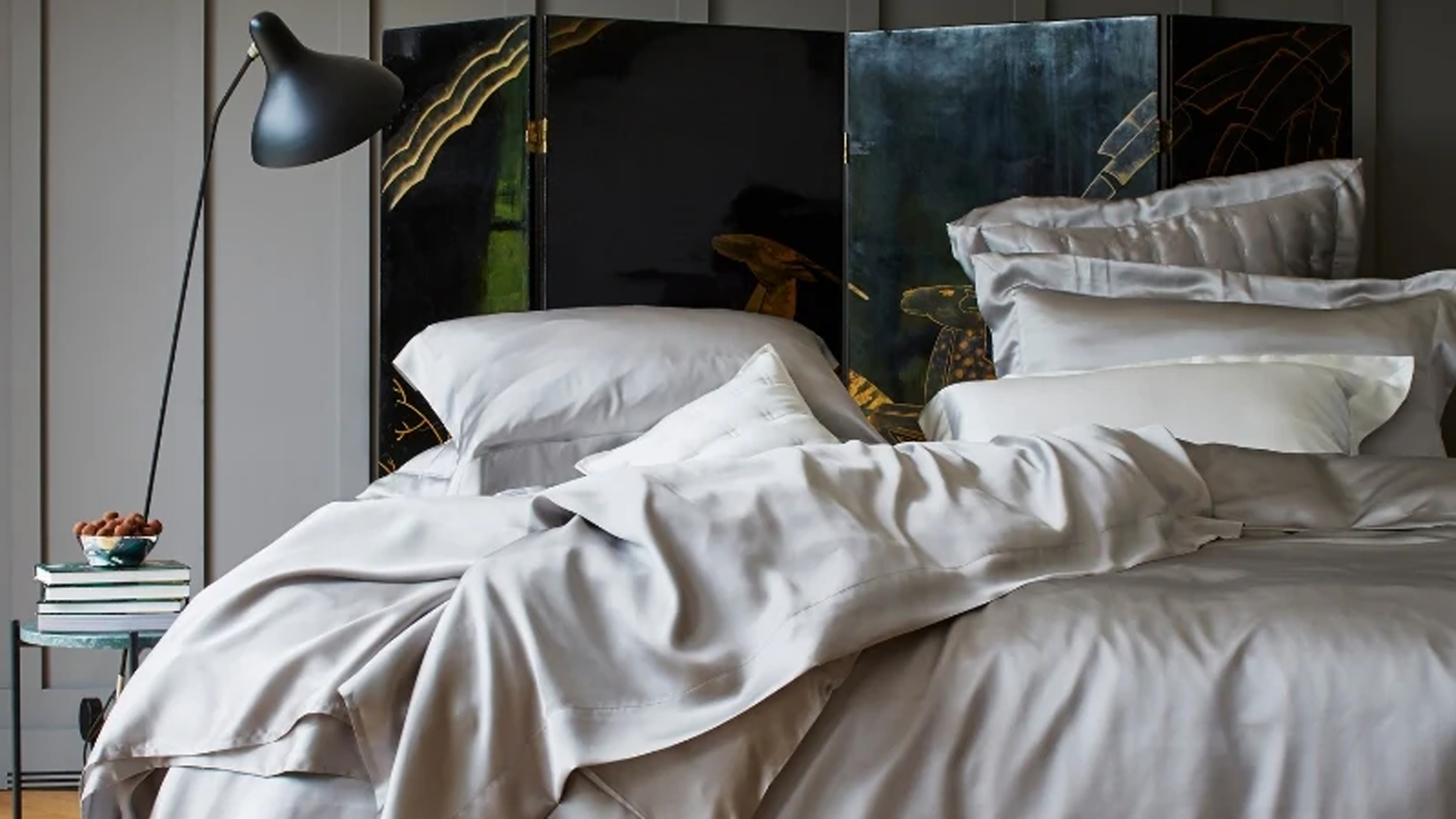

Sign up to our newsletter for style inspiration, real homes, project and garden advice and shopping know-how
You are now subscribed
Your newsletter sign-up was successful
If you’re considering investing in a good night’s sleep, you may be wondering about the benefits of silk bedding.
Silk is arguably one of the most sought-after fabrics in the world, and if you’ve ever laid your hands on pure silk, you’ll instantly understand why. Super soft and… well, silky… this luxurious fabric feels divine to the touch and has a lustrous appearance that has become symbolic of wealth and status.
A degree in textile design and four years testing all kinds of bedding fabrics as Ideal Home's Sleep Editor means I've handled a *lot* of fabrics, and I think there’s no better material to have next to your skin. Silk bedding is the ultimate indulgence.
However, despite its many benefits that can help us to sleep better, silk also has disadvantages, one of which is its price. Silk sheets are *expensive*. As such, I talked to four sleep and bedding experts to determine whether silk bedding is worth it.
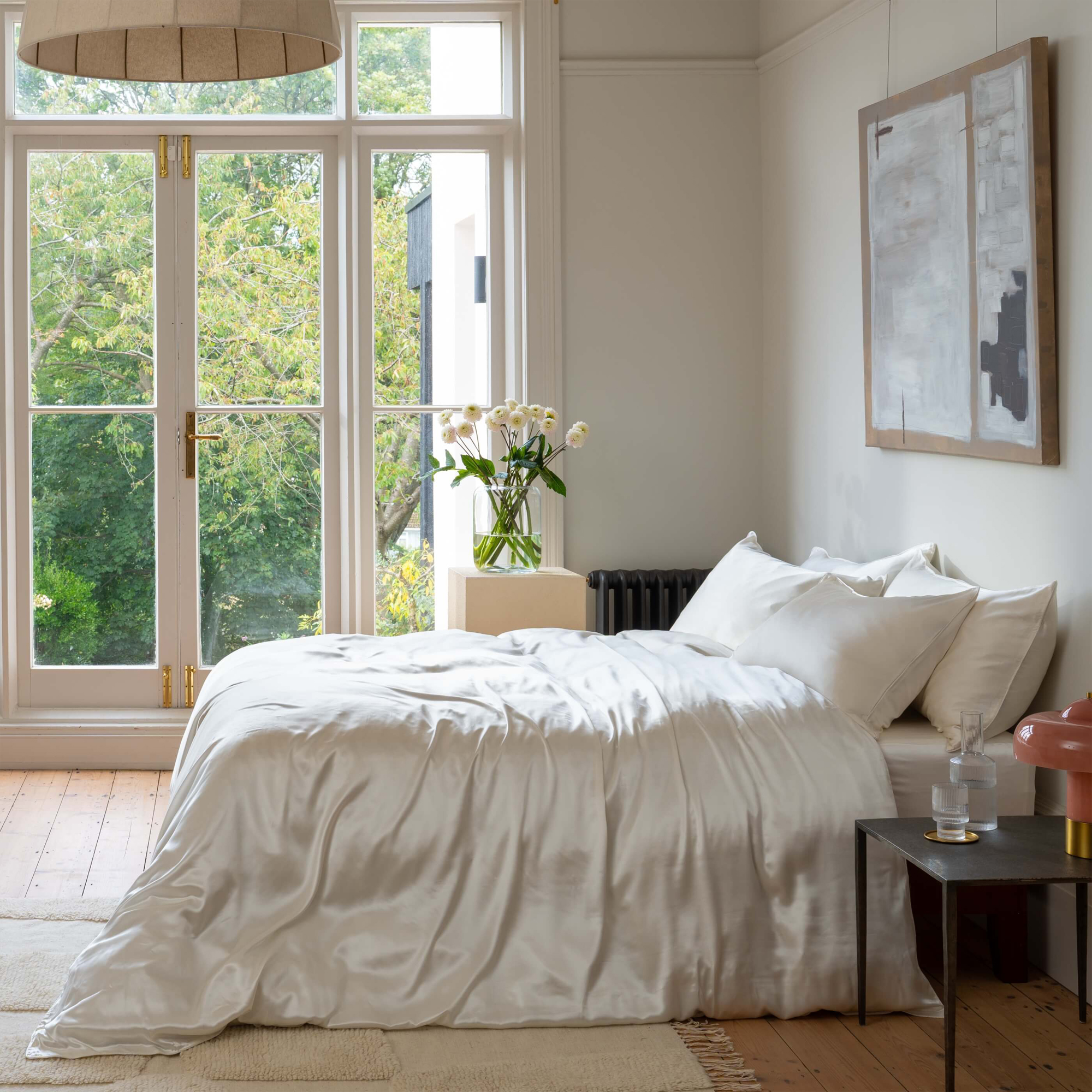
Benefits of silk bedding
‘Silk has a very long history, dating back over 6,000 years and originating in China,' says Deborah Fiddy, founder of silk bedding and nightwear brand, Gingerlily. 'The Chinese were sleeping on silk for centuries before its export through the silk route to Europe. It’s the ideal choice for bedding owing to a wealth of natural benefits.’ So, let's dig into those.
1. Looks and feels luxurious
In my opinion, the number one benefit of silk bedding is that it feels dreamily silky to the touch.
Bamboo and tencel bedding offer a little of real silk's smooth appeal, but there’s no other fabric that can compare with the lustre and silky feel of pure silk against your skin. If you’re looking for the ultimate in indulgently sensual bedding, this is it.
Sign up to our newsletter for style inspiration, real homes, project and garden advice and shopping know-how
‘The benefits of sleeping on silk bed linen are extensive, but most importantly, it’s irresistibly comfortable and it also looks and feels luxurious,’ agrees Gingerlily's Deborah Fiddy.
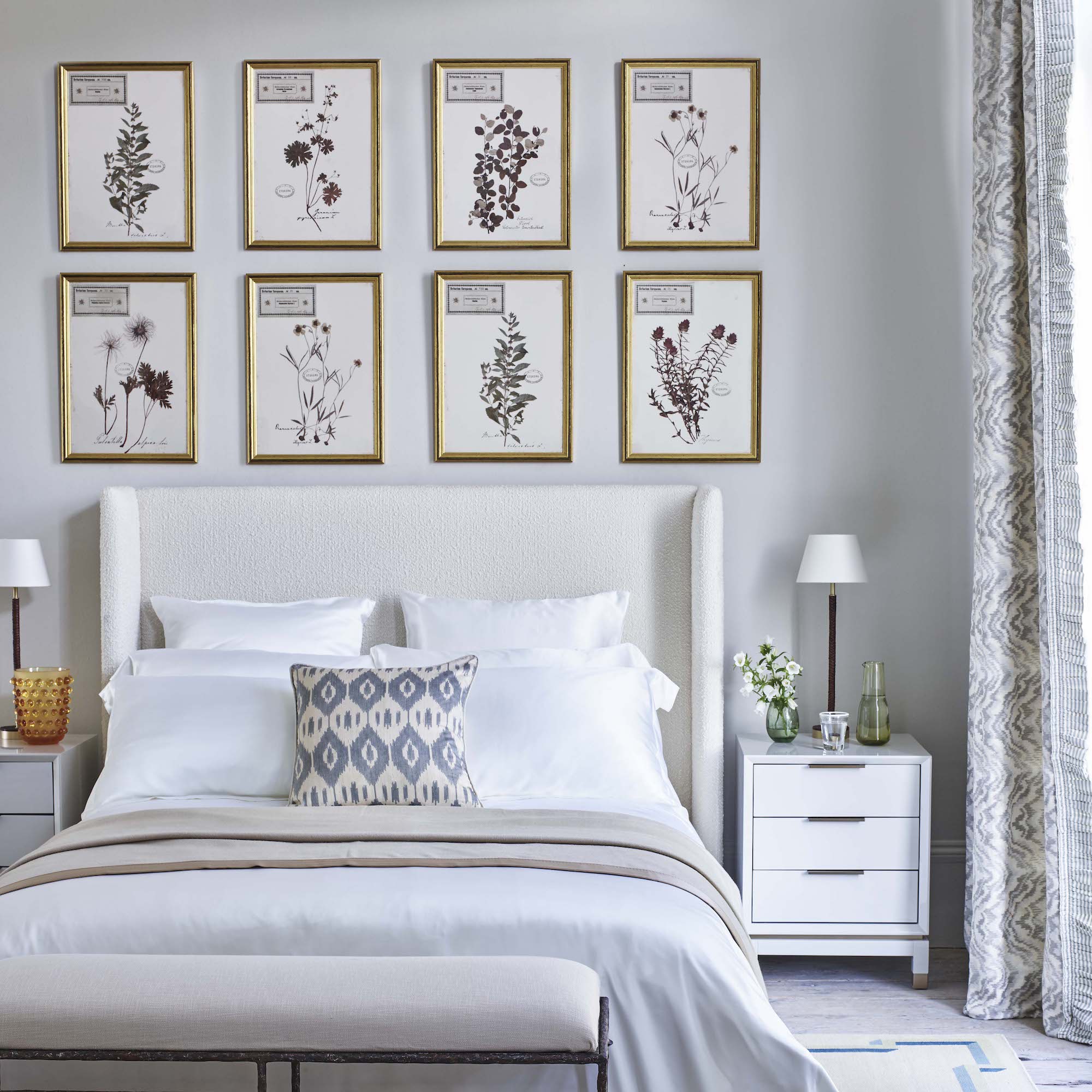
2. Temperature regulation
Silk is also a great option for hot sleepers. 'Silk is temperature-regulating, so it'll help keep you cool and comfortable throughout the night, which in turn leads to fewer disruptions as you sleep,' explain Emily and Jonathan Attwood, founders of luxury bedding brand scooms. 'It’s also naturally breathable and moisture-wicking, so it’s great for those who are hot sleepers.'
However, silk bedding isn't only for the summer months. ‘Silk acts as a natural heat conductor, adjusting to your body temperature as you sleep, making it perfect for sleeping all year round,’ explains Gingerlily’s Deborah Fiddy.
3. Hypoallergenic
Silk also offers benefits to those who suffer from allergies, particularly those with eczema or dry skin as it doesn't dry out the skin in the same way cotton bedding can.
‘Silk fibre has a high protein content, which will keep your skin soft as you sleep – making it the ideal choice for overall wellbeing and particularly for anyone with allergies or skin conditions such as eczema,’ explains Deborah. 'It's also resistant to dust mites, making it hypoallergenic, antimicrobial, and very hygienic to sleep on.'
'Being naturally hypoallergenic, silk is often a preferred choice for those with sensitive skin or allergies,' agree Emily and Jonathan of scooms.
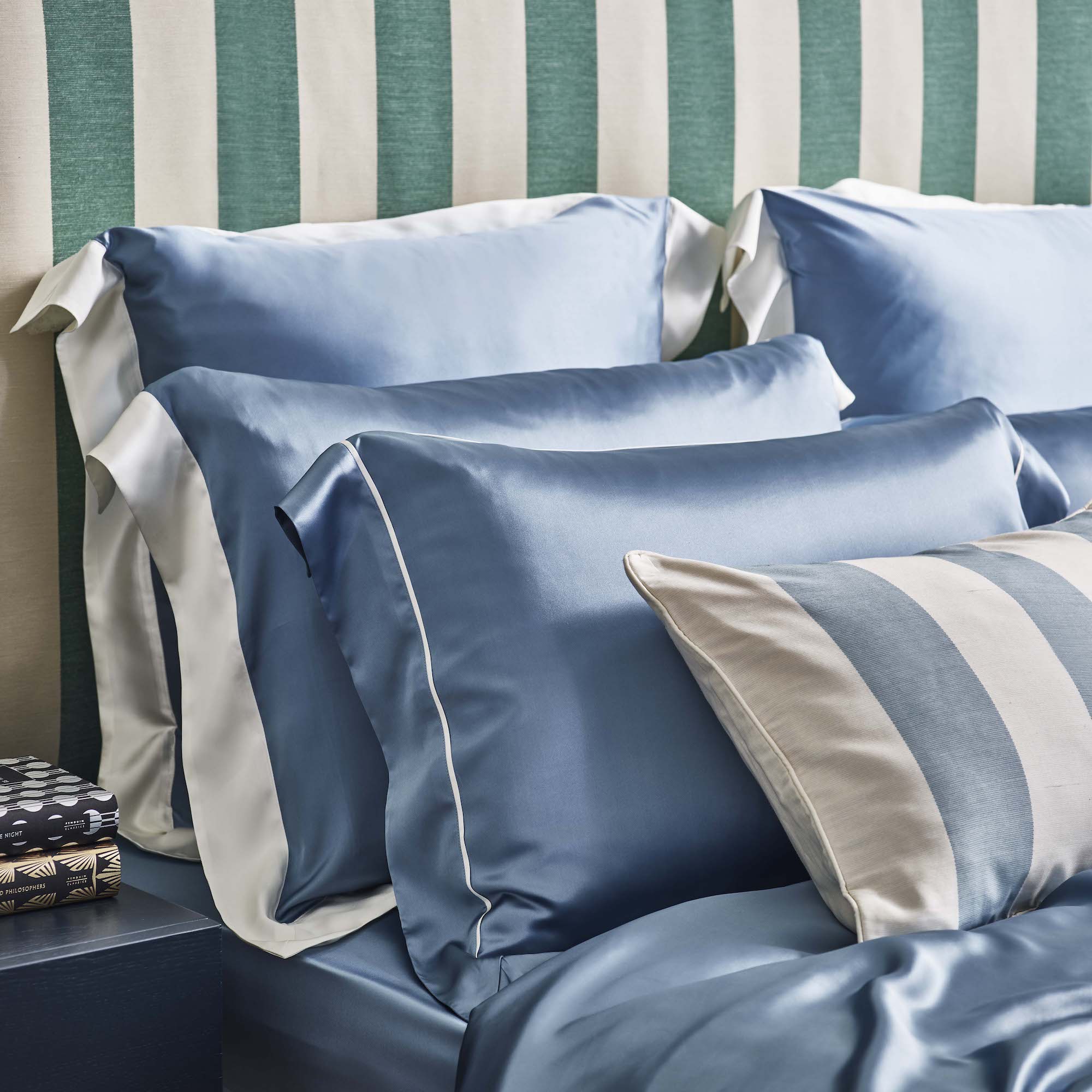
4. Skin and hair benefits
Whilst it's a particularly good choice for those with skin conditions, silk's moisture-retaining qualities mean it can also benefit anyone aiming to have healthy skin and hair.
'Silk is widely recognised for its inherent skincare benefits because it helps skin retain its natural moisture, keeping it soft and supple,’ explains Georgia Metcalfe, bedding expert and founder and creative director of French Bedroom.
'Unlike cotton or linen, natural silk can reduce friction on the skin and hair, minimising irritation and preventing bed head,' agree Emily and Jonathan. 'This means that you wake up with smoother hair and there's a lower chance of creases in your skin.'
Disadvantages of silk bedding
However, no material is perfect, and silk does have some disadvantages to consider.
1. Expensive
First and foremost in the list of silk's disadvantages has to be its price. Sadly this bedding material is *very* expensive. But then, luxury items do tend to have luxury price tags.
When it comes to where to buy bedding, there also aren't that many retailers that stock silk bedding. I've included my top three recommendations below.
However, if you're sold on silk's benefits but can't afford to spend £400 on a duvet cover – and how many of us can?! – my advice would be that you don't need to replace your whole bedding set at once.
Adding one of the best silk pillowcases to your bed is one of the most affordable ways to make the most of the benefits of silk. I've rounded up three of my tried-and-tested favourites below.
If you enjoy the feel of silk and are convinced of its benefits you could then look to add a silk sheet to your bedding wardrobe, and then perhaps gradually swap out more items in your bedding set-up.
2. Requires more TLC
It's also worth considering that, due to its delicate nature, silk requires more TLC to look after than cotton or linen bedding. However, looked after well, it can be a very durable fabric.
‘Silk is a luxurious addition to any bed, but it requires a delicate touch when it comes to cleaning,’ explains Natasha Brook, laundry expert at Dr. Beckmann. ‘Washing incorrectly can lead to damage, fading, or a rough texture that takes away from its signature softness.’
Our guide to how to wash a silk pillowcase has more information on how to care for silk bedding.
3. Slippery
Lastly, although silk's smooth texture is a large part of its appeal, not everyone loves the feel of its slippery texture.
Plus, that super smooth surface can mean silk has a bit of a chill when you first get into bed on cold nights.
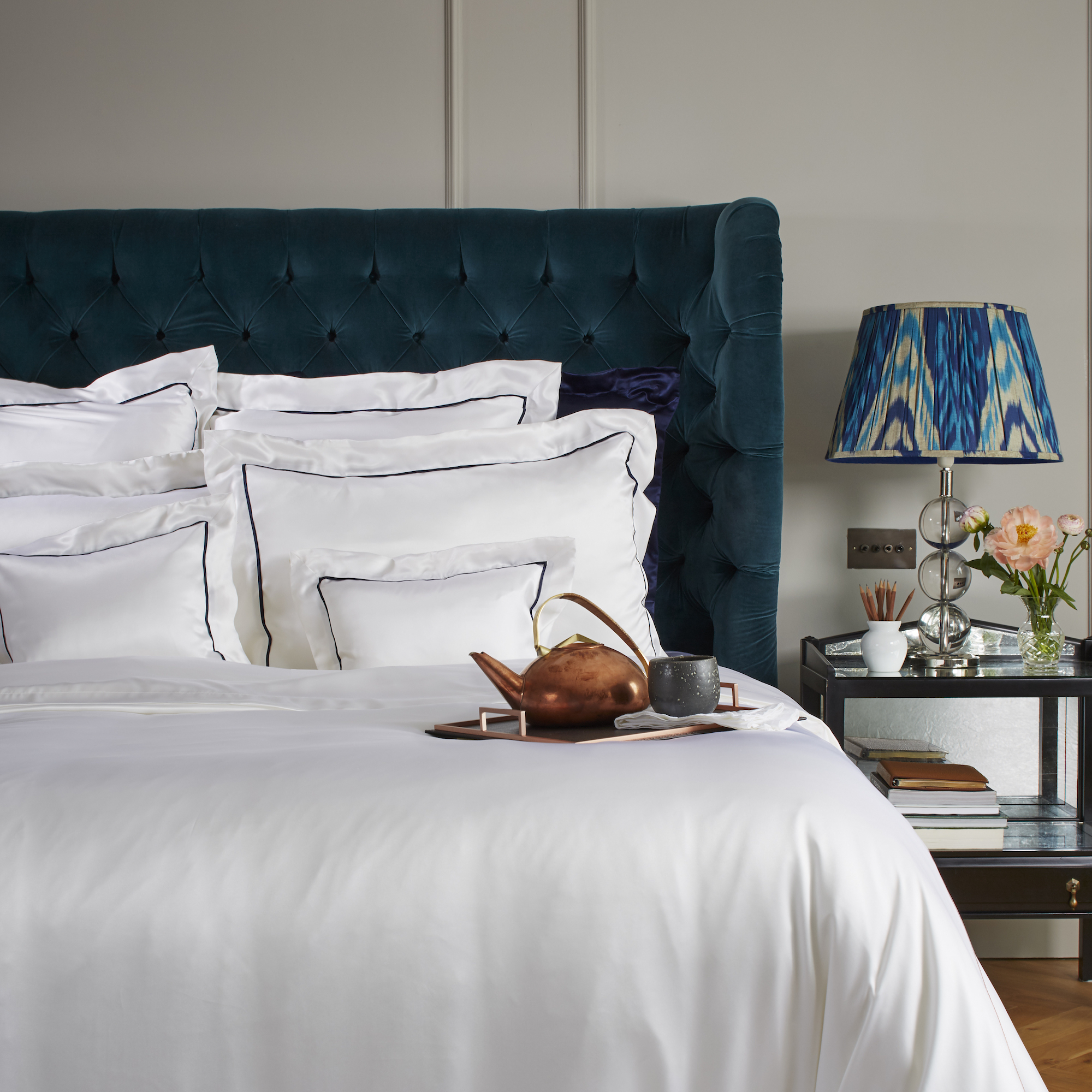
Are you sold on the benefits of silk bedding? Or does this fabric's price tag put you off? Let me know in the comments.

Amy is Ideal Home’s Sleep Editor and the Ideal Home Certified Expert on Sleep. She's spent the last five years researching and writing about what makes for the best night’s sleep during the day and testing out sleep products to find the best-in-class by night. So far she’s clocked up over 10,000 hours of pillow, duvet, and mattress testing experience.
Our go-to for all things sleep-related, she’s slept on and under bestselling products from Simba, Emma, Hypnos, Tempur, Silentnight, Panda, and many many more.
As a hot sleeper, Amy is always on the lookout for the most breathable bedding, but she also leads a wider team of testers to ensure our product testing encompasses both hot sleepers, cold sleepers, front sleepers, back sleepers, side sleepers, and everything in-between.
- Andrea ChildsEditor
